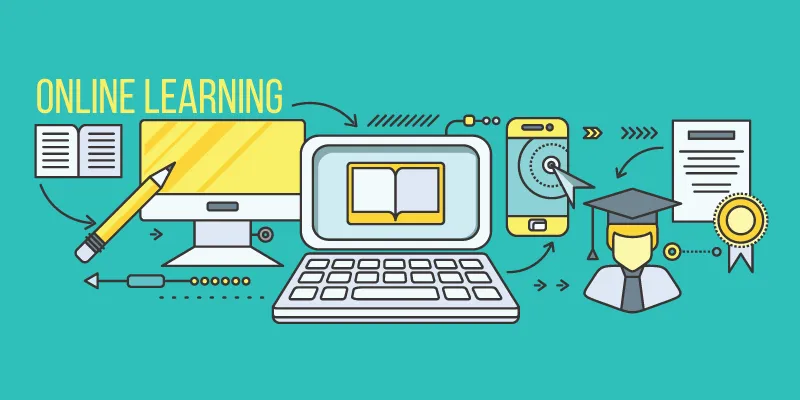How edtech startups are transforming the future of education
From personalised learning to gamification and interactive learning, edtech startups are adapting innovative ways to help students learn better.
The Indian educational landscape has witnessed a remarkable transformation with the rise of edtech startups. These innovative companies are leveraging technology to revolutionise education, offering personalised learning experiences, improving accessibility, and introducing gamification and interactive learning.
Today, edtech startups like , , , , , , and many others have transformed the way students learn, shifting classroom learning to a more fun-filled and interactive learning experience.
According to IBEF, the Indian edtech market is expected to reach $30 billion by 2031, from $700-800 million in 2021. According to KPMG, India has also become the second-largest market for e-learning after the US.
This article explores the impact of edtech startups on education and the various ways they are reshaping the learning journey.
I. Personalised Learning
Personalised learning is at the forefront of the tech. Edtech startups are reimagining traditional classroom settings by tailoring learning experiences to individual students.
Through adaptive algorithms and AI-powered platforms, students can access customised content, progress at their own pace, and receive real-time feedback.
This approach enhances student engagement, boosts motivation, and ultimately improves learning outcomes.
II. Accessibility and Inclusivity
One of the key challenges in the education system is ensuring equal access to quality learning opportunities for all.
Edtech startups are addressing this issue by leveraging technology to bridge the accessibility gap.

Online learning platforms, mobile applications, and remote learning tools enable students from diverse backgrounds and geographical locations to access educational resources.
Edtech startups are also empowering underserved communities by providing educational opportunities that were previously inaccessible.
III. Gamification and Interactive Learning
Startups are introducing gamification and interactive learning techniques to make education more engaging and fun.
By integrating game elements into content, students can participate in interactive activities, challenges, and simulations. This approach fosters active learning, problem-solving skills, and collaboration among students.
Through gamified platforms, edtech startups are transforming classrooms into dynamic and immersive learning environments.
IV. Data-driven Insights
Data analytics plays a crucial role in enhancing teaching methodologies and improving student outcomes.
Edtech startups harness the power of data to gain valuable insights into student performance, learning patterns, and areas for improvement.
By analysing student data, educators can personalise instruction, identify learning gaps, and provide targeted interventions.
This data-driven approach empowers teachers to make informed decisions and optimise the learning experience for each student.
V. Emerging Technologies
The rapid advancement of emerging technologies such as artificial intelligence (AI), virtual reality (VR), and augmented reality (AR) is shaping the future of edtech.
AI-powered chatbots provide instant tutoring and support, VR and AR applications offer immersive learning experiences, and interactive simulations enable hands-on exploration.
Edtech startups are also at the forefront of integrating these technologies into educational settings, creating innovative and engaging learning environments.
Challenges
Integration into traditional education systems
One of the significant challenges faced by edtech startups is the integration of their innovative solutions into traditional education systems.
The adoption of new technologies and teaching methods may encounter resistance from educators, institutions, and policymakers who are accustomed to conventional approaches.
Collaborative efforts are needed to bridge the gap between edtech startups and educational institutions, fostering partnerships, providing training, and creating supportive environments for successful integration.
Data privacy and security
As edtech startups gather and analyse vast amounts of student data, ensuring data privacy and security becomes a critical concern. Safeguarding sensitive information and adhering to data protection regulations are essential to maintain trust and ensure ethical practices.
Edtech companies must implement robust security measures, obtain appropriate consent, and adopt transparent policies to protect student privacy. Collaborating with regulatory bodies and embracing data privacy standards can mitigate these challenges.
Addressing the digital divide
While edtech has the potential to democratise education, the digital divide remains a significant challenge.
Disparities in access to technology and internet connectivity hinder the adoption of these solutions as well.
Bridging this gap requires concerted efforts from governments, educational institutions, and edtech startups.
Initiatives like providing internet access in underserved areas, offering affordable devices, and designing content for low-bandwidth environments can help overcome these challenges and ensure inclusivity.
Teacher training and support
To effectively implement edtech solutions, adequate teacher training and support are crucial. Educators need to be equipped with the skills and knowledge to leverage technology in the classroom effectively.
Professional development programs, workshops, and ongoing support can empower teachers to adopt new teaching methods, incorporate edtech tools, and leverage data-driven insights to enhance student learning outcomes.
Collaboration between edtech startups and educational institutions can facilitate comprehensive teacher training programs.
Scalability and sustainability
Startups in the education sector often face challenges regarding scalability and sustainability.
Developing and maintaining robust technological infrastructure, providing ongoing updates and support, and sustaining financial viability are key considerations.
Collaborating with investors, education-focused organisations, and government bodies can provide the necessary resources and support to scale operations, expand reach, and ensure long-term sustainability.
Opportunities of global reach and impact
Edtech startups have the opportunity to make a global impact by reaching students in remote areas, underserved communities, and developing countries.
With the power of online platforms, mobile apps, and accessible technology, edtech can transcend geographical boundaries and provide quality education to individuals who may have limited access to traditional educational resources.
This presents a significant opportunity for startups to bridge the education gap and empower learners worldwide.
Personalised learning and differentiation
The advent of edtech has opened new possibilities for personalised learning and differentiation in education.
By leveraging technology, edtech startups can create adaptive learning platforms, intelligent tutoring systems, and customised content delivery mechanisms.
This allows students to learn at their own pace, address their specific learning needs, and explore their areas of interest.
The opportunity to tailor education to individual learners can lead to improved engagement, motivation, and overall academic performance.
Collaboration and co-creation
Edtech startups have the opportunity to collaborate with educators, institutions, and other stakeholders to co-create innovative educational solutions.
By working closely with teachers and educational experts, edtech companies can gain valuable insights, align their offerings with pedagogical principles, and develop solutions that meet the evolving needs of learners.
Collaborative partnerships enable the development of more effective and relevant edtech tools, ensuring their applicability in real-world educational settings.
Lifelong learning and professional development
Edtech startups can play a vital role in promoting lifelong learning and professional development.
Through online courses, microlearning modules, and skill-building platforms, individuals can continuously enhance their knowledge and acquire new skills.








